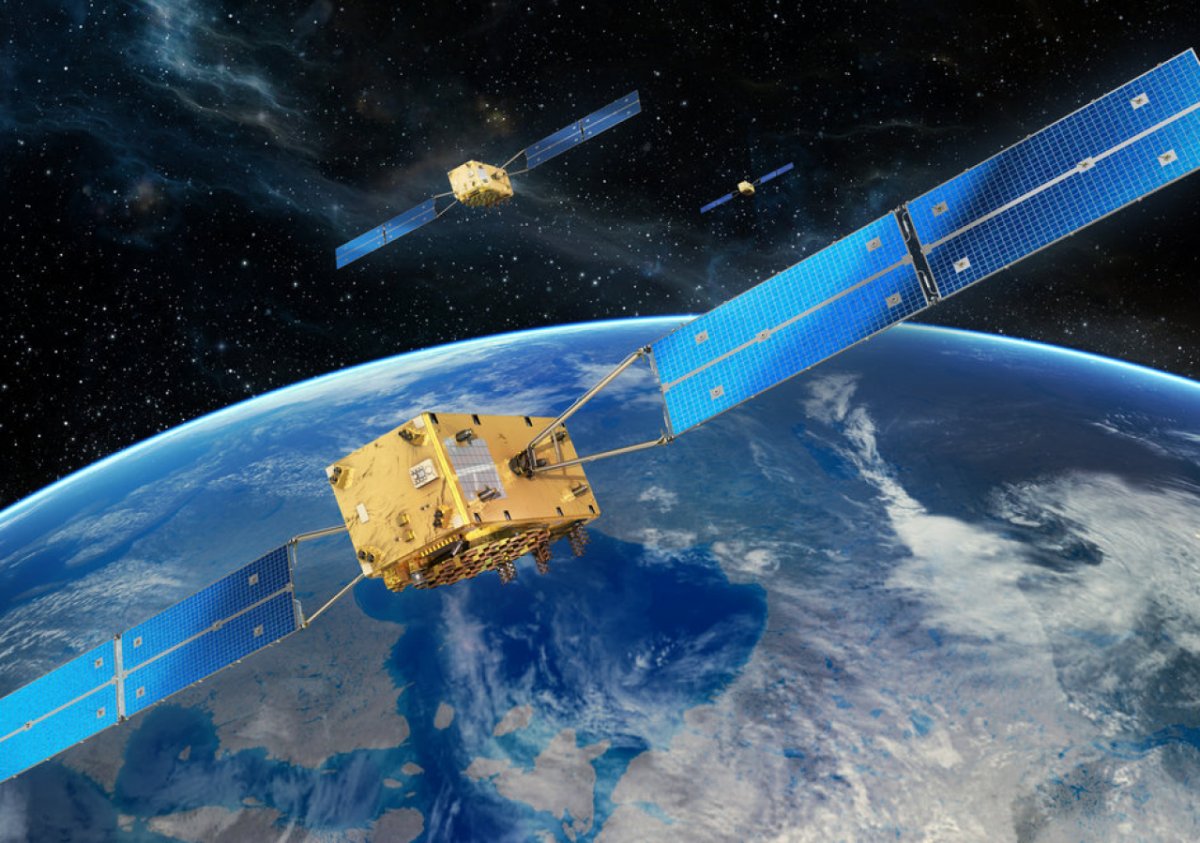Following the suspected deliberate disruption of satellite navigation during a flight by EU Commission President Ursula von der Leyen, the EU Space Commissioner has now promised countermeasures. Andrius Kubilius, who is responsible for space and defense in the Commission, explained that the EU wants to increase the number of satellites in a low earth orbit. This is to strengthen the robustness of the European navigation system Galileo and to be able to better detect interference. Encryption of the satellite data, which recently went into regular operation, should also help.
Von der Leyen’s aircraft was affected by massive disruptions to GPS satellite navigation during its approach to the Bulgarian city of Plovdiv. The pilots had to land using map material. As the area of the airfield was apparently specifically affected, it is assumed that the interference was deliberately caused. Security experts suspect that Russia was behind it.
Galileo OSNMA to help
„Jamming and spoofing harms our air, maritime & transport economies“, explained Defense Commissioner Kubilius in a post on X. While jamming interferes with navigation signals by overlapping the frequencies on which the satellites transmit, spoofing involves broadcasting a fake signal.
Kubilius notes that Galileo already offers an authentication service to detect spoofing. Galileo OSNMA (Open Service Navigation Message Authentication) was officially put into operation at the end of July. It is the first system of its kind that is also open to civilian users. OSNMA adds a kind of „digital signature“ to normal navigation data, which proves that the data really originates from the Galileo satellite system.
LEO satellites make interference more difficult
The technology behind it is based on the TESLA protocol (Timed-Efficient Stream Loss-Tolerant Authentication), which has been adapted for transmission via satellite. The special feature: Authentication takes place with a time delay. The Galileo satellites first transmit the encrypted navigation data. The corresponding decryption keys are only transmitted later – typically after 30 to 300 seconds. Only then can the receiver verify whether the data received is authentic. This delay makes it practically impossible for attackers to generate forged signals with valid signatures in real time. They would have to break the encryption before the keys are published.
The use of satellites in a low earth orbit (LEO) should, however, help to make interference with satellite navigation more difficult. LEO satellites have a lower orbital altitude, fewer signal transmission losses and stronger signal performance than those at medium or high altitude. As an extension to higher navigation satellites, they can transmit correction data and integrity information that makes interference from third parties more difficult. They also help to improve coverage of polar regions.
(mki)
Don’t miss any news – follow us on
Facebook,
LinkedIn or
Mastodon.
This article was originally published in
It was translated with technical assistance and editorially reviewed before publication.
Dieser Link ist leider nicht mehr gültig.
Links zu verschenkten Artikeln werden ungültig,
wenn diese älter als 7 Tage sind oder zu oft aufgerufen wurden.
Sie benötigen ein heise+ Paket, um diesen Artikel zu lesen. Jetzt eine Woche unverbindlich testen – ohne Verpflichtung!
